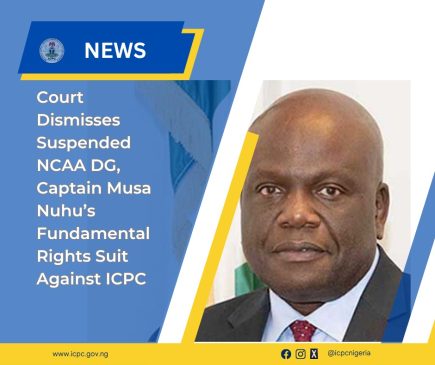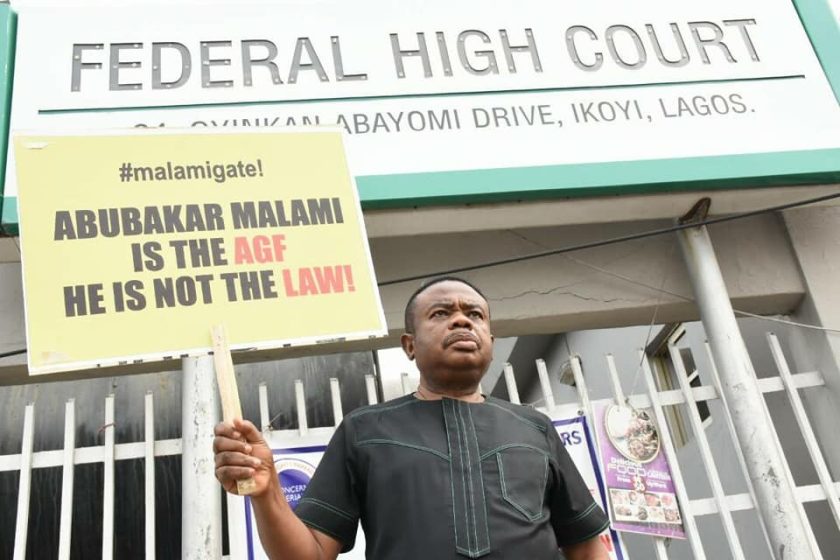The Federal Capital Territory High Court sitting in Abuja has dismissed a Fundamental Rights Enforcement suit filed by the suspended Director-General of the Nigerian Civil Aviation Authority (NCAA), Captain Musa Nuhu, against the Independent Corrupt Practices and Other Related Offences Commission (ICPC).
In suit number FCT/HC/CV/3384/2024, Captain Nuhu had challenged the invitation extended to him by the ICPC in connection with official vehicles allegedly remaining in his possession during his suspension from office.
The applicant contended that the invitation amounted to harassment, intimidation, and a violation of his fundamental rights to personal liberty and freedom of movement as guaranteed under Sections 35 and 41 of the 1999 Constitution (as amended).
In his originating summons, Captain Nuhu further argued that he was already under investigation by the Economic and Financial Crimes Commission (EFCC), and that the invitation from the ICPC, a sister anti-corruption agency, constituted a duplication of investigative processes.
In response, the ICPC, through a 13-paragraph counter-affidavit, stated that eight months after his suspension, Captain Nuhu continued to retain and use three official vehicles belonging to the Federal Government.
The vehicles were listed as a Toyota Land Cruiser VXR V8 5.7 (2019 model), a Toyota Hilux (2018 model), and a Lexus LX 570s (2019 model).
The Commission maintained that these vehicles were official government properties, and that it was within its statutory mandate to recover such assets pending the conclusion of investigations.
The ICPC further emphasized that as a suspended official, Captain Nuhu was not entitled to enjoy the privileges of his office, including the use of official vehicles.
Countering the applicant’s argument on alleged “duplicity of investigation,” the ICPC clarified that its invitation to the suspended NCAA boss was limited to the recovery of government property unlawfully retained, which was distinct from the subject of investigation being handled by the EFCC.
In her judgment, Honourable Justice Njideka Nwosu-Iheme held that there was no fundamental right of the applicant known to law that had been breached or warranted any judicial protection.
The Presiding Judge said, “Courts must refrain from clipping the wings of enforcement agencies, including the Respondent (ICPC), unnecessarily.
The Applicant has failed to prove the basis of his assertion, and his case therefore fails. The sole issue is resolved in the negative and in favour of the Respondent. I refuse this application for being unmeritorious and lacking in merit. The application is dismissed in its entirety.”
With this ruling, the court affirmed the ICPC’s legal authority to invite and question suspended public officials over the use or retention of government property pending investigations.




